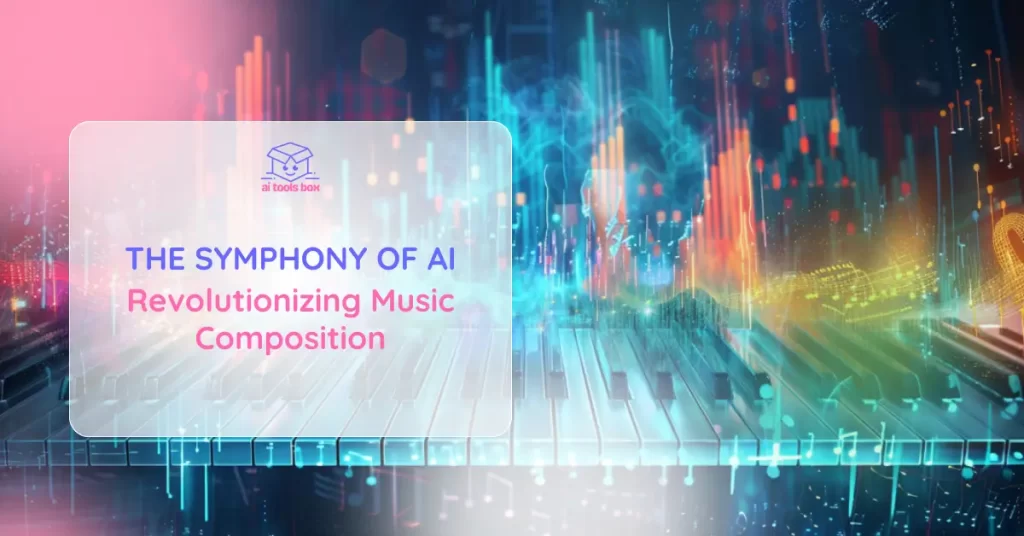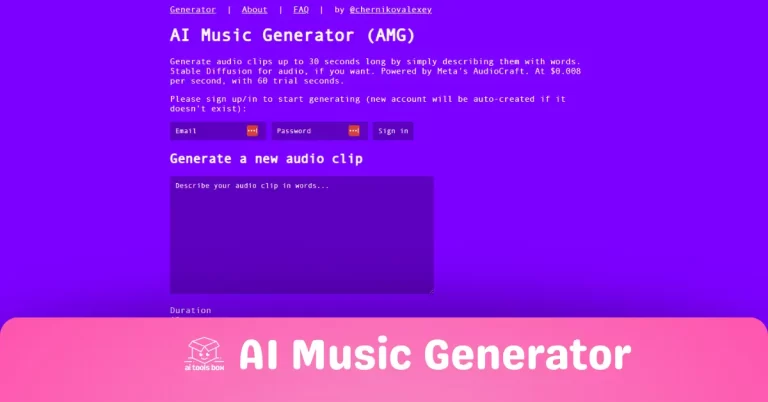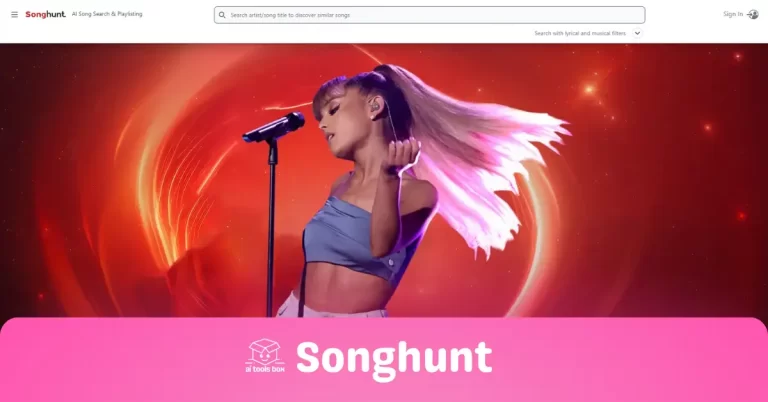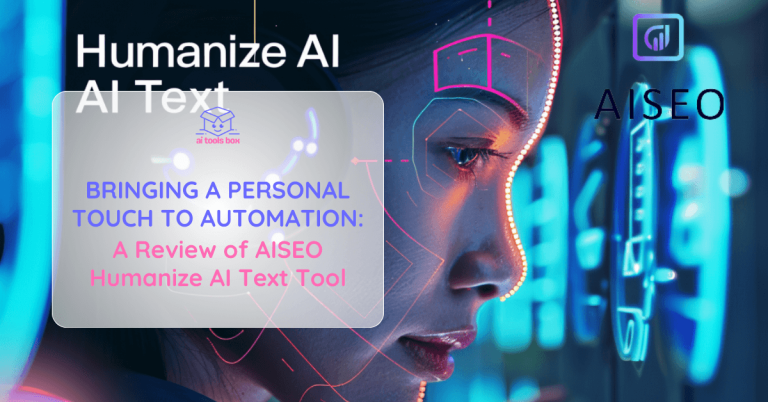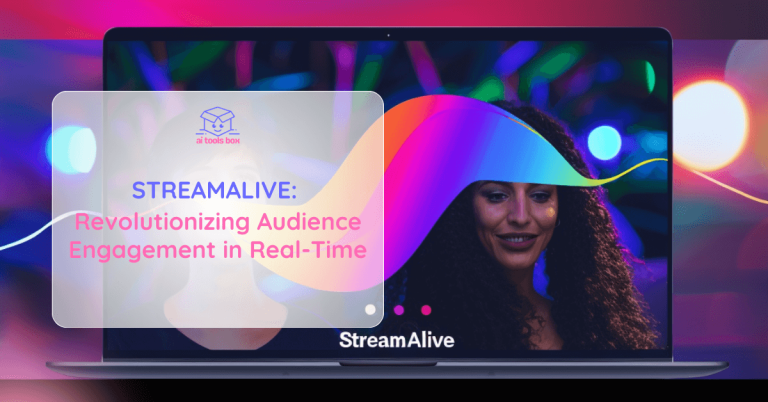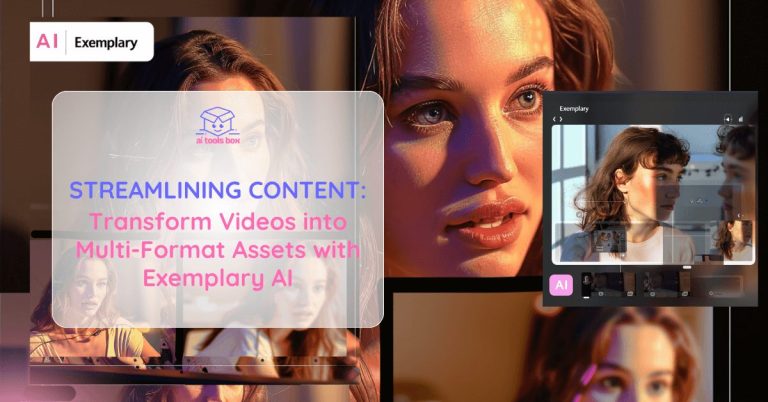The fusion of artificial intelligence (AI) and music composition marks a significant milestone in the evolution of creative arts. Far from being just another tool in the musician's repertoire, AI acts as a catalyst, fundamentally transforming the process of how melodies are conceived, developed, and realized. This transformation is not confined to the creation of new sounds alone, it extends into the realm of creativity itself, exploring uncharted territories and offering novel approaches to musical expression.
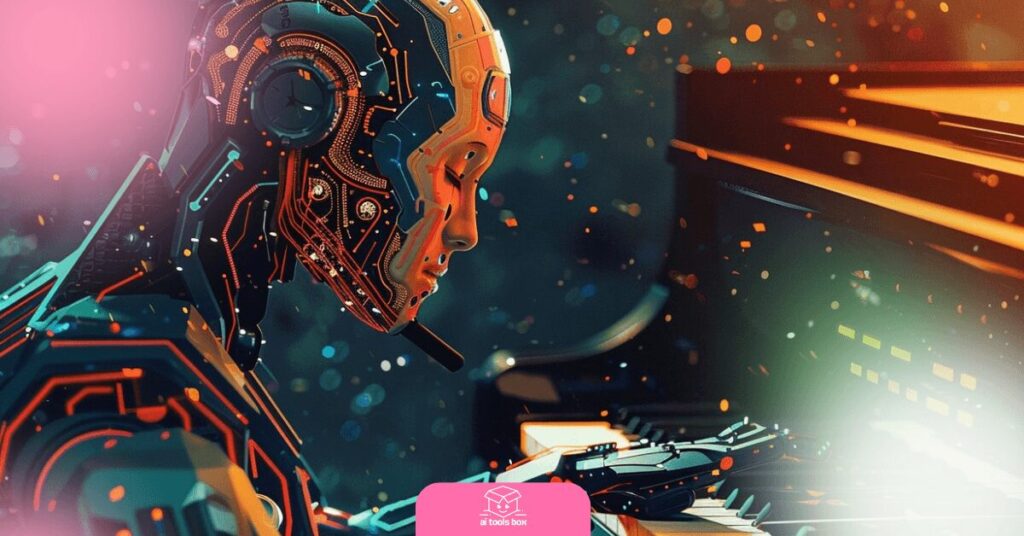
In this exploration, we will delve into specific instances of AI's impact on music, such as Project Aiva and Google's Magenta, which stand at the forefront of this revolution. These examples not only illustrate AI's capability to compose music that resonates with human emotions but also raise poignant questions about the nature of creativity and the future of musical artistry.
Historical Context
The Birth of AI in Music Composition
This section will trace the origins of AI in music, beginning with the groundbreaking “Illiac Suite” in 1956. We will explore how the pioneers of this era, such as Lejaren Hiller and Leonard Isaacson, utilized the earliest forms of computer technology, setting the stage for the profound integration of AI in music composition. A focus will be on how these early endeavors were perceived and the technological limitations they faced, juxtaposed with the aspirations they held for the future of music.
Visual Timeline
Creating a visual timeline offers a dynamic way to understand the progression of AI in music composition.
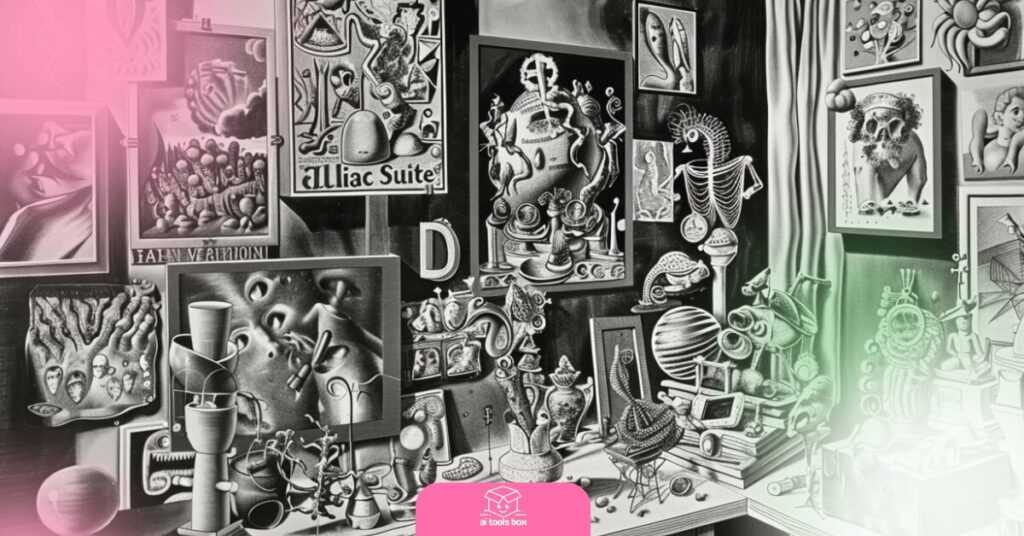
Here's a concise list highlighting key milestones that could be featured:
- 1956 – The Illiac Suite: Marking the dawn of AI in music, the Illiac Suite was the first piece of music composed with the assistance of a computer, pioneering algorithmic composition.
- 1965 – Music V: Developed by Max Mathews at Bell Labs, Music V became one of the first computer programs designed for electronic music composition, laying the groundwork for future digital synthesizers and composition software.
- 1970s – Moog Synthesizer: While not AI, the Moog was pivotal in bringing technology to the forefront of music creation, influencing how musicians and technologists would interact with music and machines.
- 1980s – MIDI Introduction: The Musical Instrument Digital Interface (MIDI) standard was introduced, transforming the music production landscape and setting the stage for more sophisticated AI integration by allowing electronic instruments and computers to communicate.
- 1997 – David Cope's Experiments in Musical Intelligence: David Cope's software, EMI (Experiments in Musical Intelligence), creates new compositions by analyzing the works of classical composers, sparking debate about creativity and originality in AI-generated music.
- 2000s – Deep Learning and Music: The advent of deep learning technologies enables more advanced AI music composition, with algorithms now capable of creating original pieces in various styles, learning from vast datasets of existing music.
- 2016 – Google's Magenta: Google announces Magenta, a project aimed at using machine learning to create art and music, pushing the boundaries of AI's creative potential and making AI tools more accessible to artists and musicians.
- 2018 – AIVA Becomes the First AI to be Recognized by a Music Copyright Society: AIVA (Artificial Intelligence Virtual Artist) is officially recognized by SACEM (Society of Authors, Composers, and Publishers of Music in France), a landmark moment for AI in music composition and copyright.
- 2020s – Real-time AI Music Performance and Interaction: Advances in AI enable real-time music composition and performance, with AI algorithms now capable of improvising and interacting with live musicians, indicating a future of collaborative human-AI performances.
Technical Insights
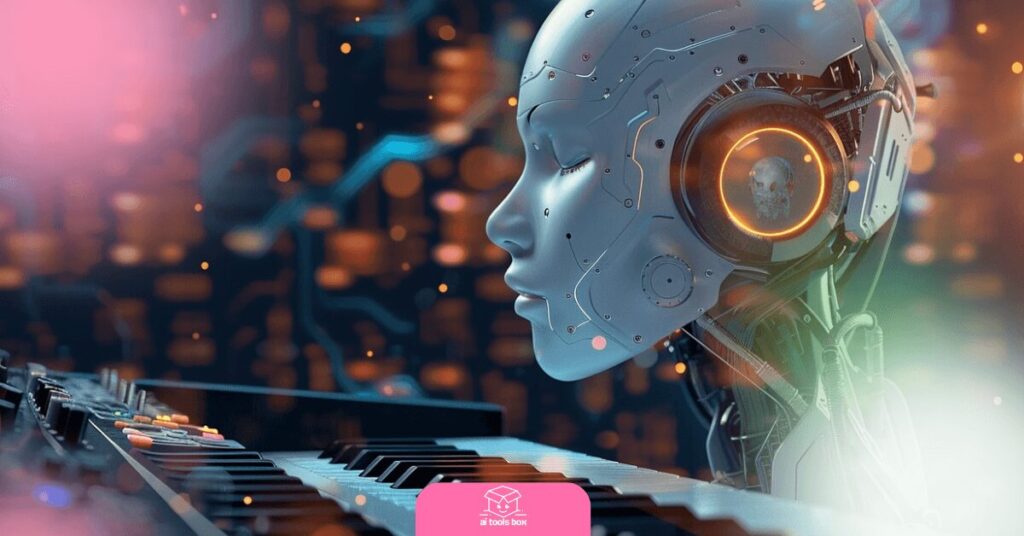
Understanding AI Algorithms
An in-depth look at the algorithms that empower AI to compose music. From machine learning models to evolutionary algorithms and generative adversarial networks (GANs), this section will demystify the technology behind AI's musical capabilities. Specific focus will be given to the methodology of training these algorithms with vast datasets and the process through which they generate novel compositions.
At the core of AI's ability to compose music lies a diverse array of algorithms, each contributing uniquely to the creative process.
- Machine learning models, particularly deep learning, have become instrumental in teaching computers to understand and generate music. These models are trained on vast datasets containing a wide variety of musical pieces, enabling them to recognize patterns, structures, and styles across different genres. Once sufficiently trained, these models can produce new compositions that reflect the learned characteristics, occasionally with startling creativity and complexity.

- Evolutionary algorithms introduce another fascinating approach by simulating the process of natural selection. Here, numerous musical ideas are generated, evaluated, and iterated upon, with the most promising ones selected for further development. This method mimics biological evolution, leading to the creation of innovative and unexpected musical compositions.
- Generative Adversarial Networks (GANs) represent a more recent development, where two neural networks engage in a sort of creative competition. One network generates music, while the other evaluates its quality, in a continuous cycle of improvement. This results in music that is not only complex but also highly nuanced, pushing the boundaries of what's possible in AI-generated compositions.

Audio and Visual Examples
In the realm of AI and music, hearing is believing. To truly grasp the capabilities of AI in music composition, one must experience it directly. This section provides a curated selection of audio and visual examples from a variety of AI music projects. Each example demonstrates a unique aspect of AI's application in music, from classical compositions to cutting-edge experimental sounds. These examples are not just demonstrations of AI's technical prowess but also a testament to its potential as a creative tool.
Example 1: Classical Music by AIVA
- Description: Experience the elegance of classical music composed by AIVA (Artificial Intelligence Virtual Artist), an AI programmed to compose symphonic pieces. AIVA's compositions are rich, emotionally resonant, and indistinguishable from those created by human composers.
- Listen Here: AIVA's Symphony
Example 2: The Infinite Drum Machine by Google's Magenta
- Description: Discover the quirky and infinitely variable beats created by The Infinite Drum Machine. Using machine learning, this project categorizes thousands of everyday sounds and assembles them into unique, never-before-heard beats.
- Explore Here: Infinite Drum Machine
Example 3: Taryn Southern’s “I AM AI” Album
- Description: Pop artist Taryn Southern's album “I AM AI” is one of the first to be entirely composed and produced with AI assistance. It showcases how AI can be used not just as a tool for composition but also as part of the creative process itself.
- Watch and Listen: Taryn Southern – Break Free
Example 4: Dadabots Streaming Death Metal
- Description: For something on the experimental side, Dadabots continuously streams AI-generated death metal music, created by training a neural network on a dataset of underground band recordings. This example pushes the boundaries of genre and shows AI's capability to engage with niche musical communities.
- Stream Here: Dadabots Death Metal
Example 5: Holly Herndon's “PROTO”
- Description: Holly Herndon’s album “PROTO” features live vocal processing and an AI choir, blending human and machine voices. The project explores the collaborative relationship between humans and AI in the creative process, offering a glimpse into the future of music.
- Experience Here: Holly Herndon – Eternal
Impact and Innovation
Creativity and Cultural Diversity
The advent of AI in music composition is not just a technical revolution; it's a cultural one, fostering an unprecedented global dialogue within the musical community. By transcending geographical, cultural, and traditional boundaries, AI is facilitating a new era of musical expression that is as diverse as it is innovative. This section explores how AI's role in blending genres and traditions is creating unique soundscapes, thereby enriching the tapestry of global music culture.
- Global Collaborations: AI music projects often bring together artists, programmers, and researchers from different parts of the world, fostering collaborations that might not have been possible otherwise. These projects benefit from diverse perspectives, leading to the creation of music that incorporates a wide range of cultural influences and styles. For instance, the “AI Song Contest,” inspired by the Eurovision Song Contest, invites teams to create new music using AI, resulting in a rich blend of genres and traditions that reflect the global nature of the contest's participants.
- Preserving and Reinventing Traditions: AI is also playing a role in preserving musical traditions while simultaneously pushing the boundaries of traditional music. Researchers and musicians are using AI to analyze and learn from traditional music forms, creating compositions that are deeply rooted in cultural heritage yet infused with contemporary elements. This not only helps keep these traditions alive but also introduces them to new audiences in innovative ways. For example, projects like Google's “Magenta” have experimented with training AI on specific folk music traditions, resulting in new compositions that echo the traditional melodies while introducing novel harmonic and rhythmic elements.
- Creating New Genres: Perhaps one of the most exciting aspects of AI's impact on music is its potential to create entirely new genres and styles. By blending elements from diverse musical traditions and genres, AI can generate compositions that defy conventional classifications. These new genres are not limited by the traditional constraints of music theory or cultural expectations, offering listeners and creators alike a glimpse into the future of musical innovation.
- Breaking Down Barriers: AI in music composition is democratizing the process of music creation, making it more accessible to individuals from different cultural and socio-economic backgrounds. With AI, musicians and creators who may not have formal training in music composition have the opportunity to express themselves and contribute to the global music dialogue. This inclusivity is not only expanding the diversity of music being created but also challenging the notion of who can be a composer.
- Case Study – The World in Harmony: A notable example of AI's role in transcending cultural boundaries is the “World in Harmony” project. This initiative involved training an AI on traditional music from various cultures around the globe, from Chinese folk melodies to African rhythms and Western classical music. The AI then created a series of compositions that blended these diverse influences, showcasing the potential for a truly global musical language that transcends cultural and geographical barriers.
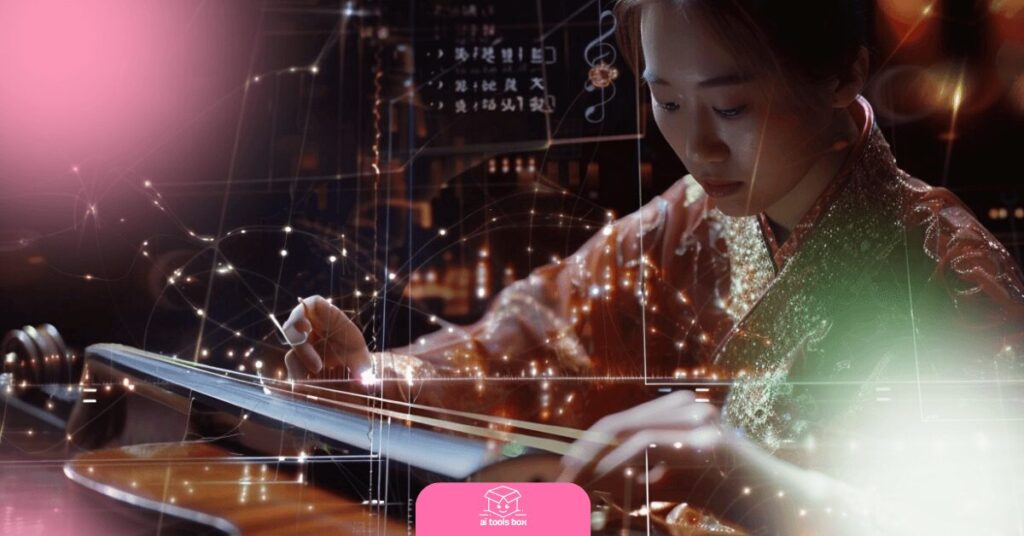
Through these examples and initiatives, it's evident that AI in music is not merely a tool for innovation but a bridge connecting different cultures, traditions, and ideas. The result is a richer, more diverse musical landscape that invites exploration, collaboration, and appreciation across the global community, heralding a new era of creativity and cultural exchange in the world of music.
Ethical and Legal Challenges
The integration of AI in music composition, while opening avenues for unprecedented creativity, also navigates a labyrinth of ethical and legal challenges. The emergence of AI-generated music has sparked intense debates over authorship, copyright, and authenticity, challenging the existing legal frameworks and ethical norms within the creative arts. This section delves into these challenges, highlighting the nuances and complexities at the intersection of technology, law, and creative expression.
- Authorship and Copyright: One of the most pressing issues is determining the authorship of AI-generated music. Traditional copyright laws are built on the premise of human creativity and intentionality, but AI complicates this notion. When an AI composes music, questions arise about who the copyright holder is: the programmer who created the AI, the user who initiated the composition process, or the AI itself? The case of AIVA, the first AI to be registered with a copyright society as a composer, exemplifies this dilemma, challenging our understanding of creativity and ownership.
- Authenticity and Originality: The authenticity and originality of AI-generated music also come under scrutiny. Critics argue that music created by AI may lack the emotional depth and authenticity of human-composed music, potentially leading to a homogenization of music where AI-generated compositions are indistinguishable from one another. Moreover, the potential for AI to replicate existing styles and compositions raises concerns about originality and the possibility of inadvertently creating derivative works.
- Ethical Considerations: Beyond legal issues, there are ethical considerations regarding the use of AI in music. The potential for AI to replace human musicians in some contexts raises questions about the future of human creativity and the value of human artistic expression. Additionally, the use of AI to manipulate emotions or create highly targeted music for commercial purposes poses ethical dilemmas about the manipulation of listeners' responses and the commodification of music.
- Navigating Copyright with AI: As AI-generated music becomes more prevalent, there's a growing need to navigate copyright issues carefully. This involves developing new legal frameworks and copyright models that acknowledge AI's role in the creative process while ensuring fair compensation and recognition for all parties involved. Initiatives like blockchain technology for tracking copyright ownership and distribution of royalties offer potential solutions, providing transparency and security in the digital music landscape.
- Case Studies and Current Debates: Various instances highlight these challenges, such as lawsuits involving AI-generated music accused of copyright infringement. These cases often revolve around the complexity of distinguishing between inspiration and imitation, especially when AI algorithms are trained on extensive datasets of existing music. The outcomes of such lawsuits could set precedents, shaping the future legal landscape for AI-generated content.
Conclusion and Engagement
Conclusion with a Call to Action
A summarization of key insights and a forward-looking perspective on how individuals can engage with AI in music, whether as creators, consumers, or critics. Encouragement for readers to explore AI music tools and platforms, fostering a deeper connection with the technology.
How to Get Involved
Practical advice for readers interested in delving deeper into the world of AI and music, including resources, communities, and platforms that offer hands-on experiences with AI music composition.
- Explore AI Music Platforms: Begin by exploring platforms and tools that allow users to experiment with AI music composition. Tools such as AIVA, Amper Music, and Google's Magenta project provide accessible entry points for creating music with AI, regardless of your musical or technical background. These platforms often offer free versions or trials, making it easy to start experimenting with AI-generated music.
- Join Online Communities: Online forums and communities can be invaluable resources for learning and sharing experiences. Platforms like Reddit have dedicated subreddits (e.g., r/WeAreTheMusicMakers, r/MachineLearning) where enthusiasts discuss AI music projects, share creations, and offer advice. Social media groups and Discord channels focused on music technology also provide spaces for collaboration and networking.
- Participate in Workshops and Webinars: Keep an eye out for workshops, webinars, and online courses that focus on AI music composition. Universities, tech companies, and independent artists often host events that can provide deeper insights into the technology and its creative applications. These sessions can range from introductory overviews to in-depth technical tutorials, catering to various levels of expertise.
- Experiment with Open-Source Projects: For those with a technical inclination, contributing to or experimenting with open-source AI music projects can be a rewarding endeavor. Projects like Magenta by Google not only offer tools for creating music but also encourage contributions from the community to improve and expand the technology.
- Attend AI Music Exhibitions and Performances: As the field of AI music grows, so do opportunities to experience it live. Exhibitions, performances, and installations featuring AI music are increasingly common in festivals and events worldwide. Attending these events can provide inspiration and offer a sense of the community and artistic possibilities within this space.
- Follow Leading Researchers and Artists: Stay informed about the latest developments by following the work of leading researchers, artists, and institutions active in AI music. Academic journals, conference proceedings, and personal blogs are excellent sources of cutting-edge research and artistic explorations.
- Collaborate on Projects: Finally, consider collaborating on AI music projects. Collaboration can take many forms, from creating music with friends using AI tools to participating in hackathons or joining interdisciplinary project teams. Collaborative projects can offer new perspectives and push the boundaries of what you can achieve with AI music.
Additional Resources
Interviews with Experts
The exploration of AI's role in music is not just about understanding the technology; it's about grasping its impact on the creative process, ethical considerations, and the broader cultural implications. To navigate these complex topics, we've sought insights from a diverse group of experts who reside at the intersection of AI and music. These interviews provide a kaleidoscope of perspectives on how AI is reshaping the musical landscape.
- Dr. Elena Harris, Musicologist and AI Ethicist: Dr. Harris discusses the historical context of AI in music, noting how technological advances have always influenced musical expression. She delves into the ethical implications of AI in music, especially concerning authorship and copyright issues.
“As AI becomes more capable of generating sophisticated compositions, the question of who — or what — can be considered the ‘author' of a piece of music becomes increasingly complex,” she states.
Dr. Harris advocates for clear guidelines that respect both the creative contributions of human artists and the innovative capabilities of AI systems.
- Maxwell Liu, AI Researcher and Developer: Liu focuses on the technical evolution of AI music composition tools and the future possibilities these technologies hold. He highlights the importance of machine learning models in understanding and replicating musical structures and styles. Liu is optimistic about the future, envisioning AI as a collaborator that expands the creative horizons of musicians.
“AI is not here to replace artists but to inspire them and give them new tools to express their creativity,” he explains.
- Aria Kim, Composer and AI Collaborator: Kim shares her firsthand experience working with AI to create music. She describes the process as both challenging and enlightening, offering a unique blend of her creative intuition with the AI's computational power. Kim's work with AI has led her to explore new musical genres and themes, pushing her creative boundaries.
“Collaborating with AI has taught me to view music from a different perspective, opening up a world of possibilities that I had never considered before,” she reflects.
- Lucas Chen, Blockchain Expert in Music Distribution: Chen addresses how blockchain technology can revolutionize the music industry, especially when combined with AI. He talks about creating transparent and efficient systems for copyright management and artist compensation.
“Blockchain and AI together can create a fairer music ecosystem where artists are properly compensated for their work, and listeners have access to a wider range of music,” Chen suggests.
Through these expert interviews, it becomes clear that AI's role in music is multifaceted, touching on technical innovation, creative processes, and ethical considerations. Each expert brings a unique perspective to the table, contributing to a richer understanding of AI's transformative potential in music. These insights not only highlight the challenges but also celebrate the opportunities for growth, innovation, and collaboration in this exciting field.
AI Tools and Platforms
For those eager to explore the practical aspects of AI in music composition, this section provides an overview of cutting-edge tools and platforms.
From software that facilitates the creation of AI-composed pieces to platforms that offer collaborative spaces for artists and AI, the landscape is rich with opportunities for experimentation and creation.
- AIVA: Known for being the first virtual composer to have its copyrights recognized by a music society, AIVA offers insights into the composition of classical music using AI.
- Google's Magenta: An open-source project that explores the role of AI in the process of creating art and music, Magenta provides tools for developers and artists to experiment with machine learning in the arts.
- Amper Music: Aimed at enabling users to create unique, royalty-free music through AI, Amper Music offers an intuitive platform for crafting soundtracks and musical pieces without needing extensive musical training.
These tools not only democratize the music creation process but also challenge users to rethink the boundaries between human and machine creativity. By engaging with these platforms, individuals can participate in the ongoing evolution of music composition, contributing to a future where AI and human creativity coalesce in harmony.
The Future of AI in Music
Integration with Emerging Technologies
The convergence of AI with emerging technologies such as virtual reality (VR), augmented reality (AR), and blockchain heralds a new era in music composition and consumption. This integration promises to redefine our musical experiences, creating synergies that could further blur the lines between the creator, the creation, and the consumer.
- Virtual Reality (VR) and Augmented Reality (AR): By integrating AI with VR and AR, composers and artists have the opportunity to craft immersive musical experiences that are not only heard but also visually and spatially engaging. Imagine a VR concert where the music adapts in real-time to the interactions of the audience, or an AR application that overlays AI-generated music onto real-world environments, providing a soundtrack for our daily lives. These experiences could deepen emotional connections with music, making it a more interactive and personalized art form.
Furthermore, AI could use data from these interactions to generate music that evolves, learning from the behaviors and preferences of listeners to create more engaging and tailored experiences. This dynamic interplay between AI, music, and immersive technology opens up endless possibilities for creative expression and audience engagement.
- Blockchain: The application of blockchain technology in the music industry, particularly in conjunction with AI, offers promising solutions to longstanding issues such as copyright management, distribution, and artist compensation. Blockchain can provide a transparent, immutable ledger for music rights and royalties, ensuring that creators are fairly compensated for their work.
When combined with AI, blockchain technology could revolutionize the way music is distributed and monetized. AI-generated music, authenticated and secured on a blockchain, could be distributed directly to consumers without the need for traditional intermediaries. This model could enable a more equitable distribution of revenue, empowering artists and creators by giving them greater control over their work and its financial returns.
Moreover, blockchain could facilitate novel forms of musical content consumption. For instance, fans might acquire unique digital collectibles or limited edition versions of AI-composed music, verified by blockchain, enhancing the value and uniqueness of digital assets in the music industry.
- Implications for Creators and Consumers: The synergy between AI and these cutting-edge technologies holds the potential to democratize music creation, making sophisticated composition tools accessible to a wider audience. This democratization could lead to a surge in creative output, diversifying the musical landscape and giving voice to previously unheard artists.
For consumers, these integrations promise more interactive and personalized musical experiences, transcending traditional listening. As the barriers between creators, consumers, and technology continue to diminish, the role of the listener could evolve from passive consumer to active participant, co-creating the music experience in concert with AI and immersive technologies.
Predictive Trends
The application of AI in predicting future music trends represents a paradigm shift in how the music industry approaches creation, distribution, and marketing. By analyzing vast datasets comprising streaming numbers, social media engagements, and even the sonic qualities of music itself, AI can offer unprecedented insights into consumer preferences and emerging genres.
This section explores the potential of AI's predictive capabilities and their broader implications for the music industry.
- Consumer Preferences: AI's ability to analyze listener data in real-time can uncover emerging patterns and preferences, enabling artists and record labels to adapt more swiftly to changing tastes. This could lead to the creation of music that aligns more closely with what listeners want, potentially increasing engagement and listener satisfaction. For instance, by identifying a rising interest in certain beats per minute (BPM) or key signatures, artists could tailor their compositions to match these preferences.
- Emerging Genres and Subgenres: The predictive power of AI extends to identifying nascent genres and subgenres before they reach mainstream awareness. By analyzing online music communities, genre-specific playlists, and niche streaming platforms, AI can detect the early signs of genre evolution. This capability not only benefits music creators and producers looking to innovate but also musicologists and academics studying the dynamics of musical change.
- Impact on Music Production: AI's predictive analytics can influence the music production process, guiding producers and artists toward sounds and production techniques likely to resonate with future audiences. This might involve suggestions for instrumentation, lyrical themes, or even collaboration opportunities with artists in other genres to create hybrid styles that appeal to broader audiences.
- Marketing and Distribution Strategies: Predictive trends can revolutionize how music is marketed and distributed. Record labels and independent artists could use AI insights to devise targeted release strategies, optimizing for when and where to launch new albums or singles. Additionally, predictive models could inform personalized marketing campaigns, ensuring that listeners discover new music aligned with their evolving tastes.
- Ethical and Cultural Considerations: While the potential of AI in predicting music trends is vast, it also raises ethical and cultural considerations. There's a risk that reliance on predictive analytics could homogenize music, prioritizing commercial viability over artistic integrity. Furthermore, the dominance of certain musical styles could marginalize niche genres and cultural traditions, reducing the diversity of the musical landscape.
- The Role of AI in Balancing Trends and Innovation: The ultimate challenge for AI in music is to balance the predictive understanding of trends with the promotion of innovation and diversity. AI tools must be designed to not only predict and reinforce existing preferences but also to expose listeners to new and diverse musical experiences, enriching the cultural tapestry of music.
